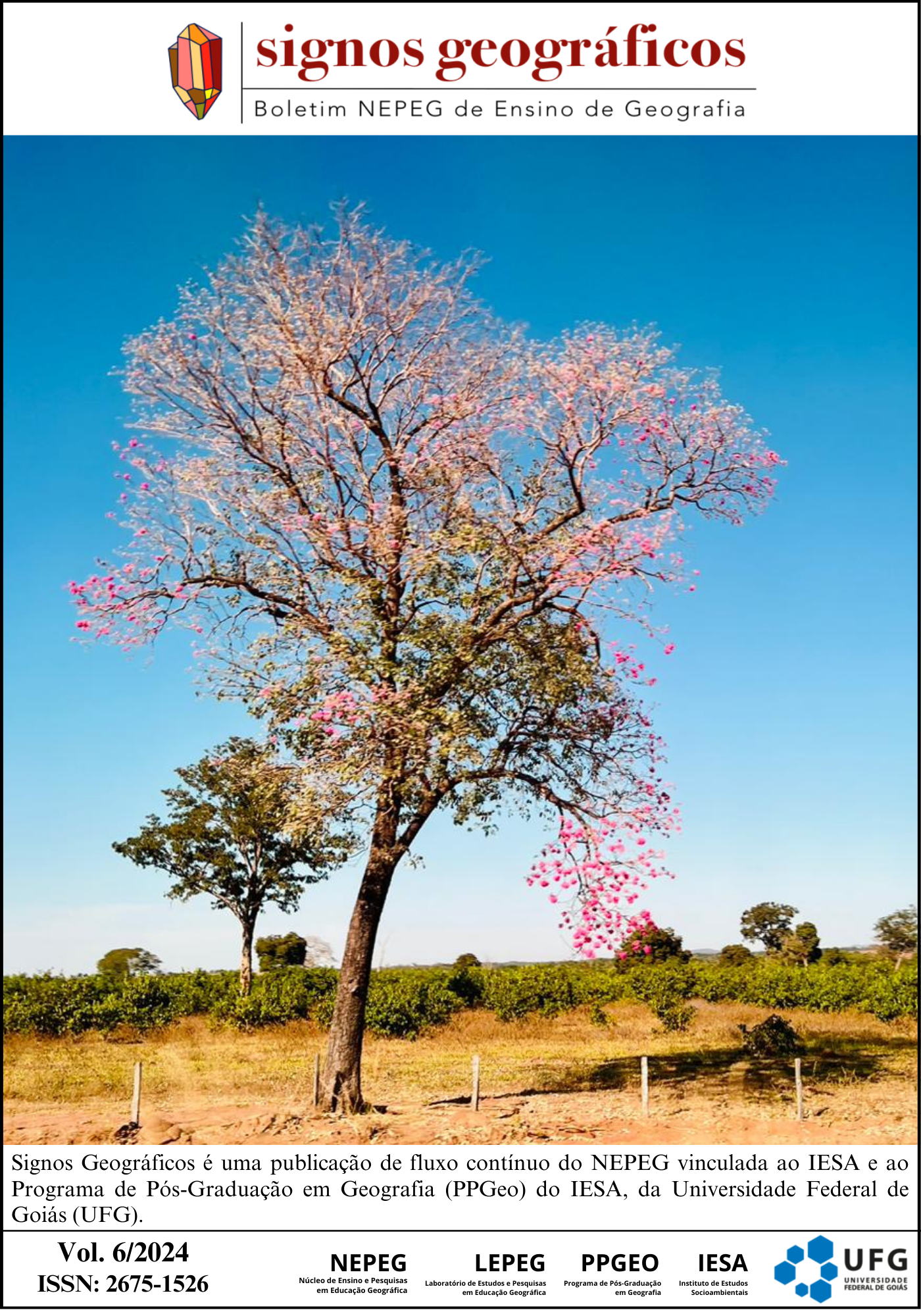GEOGRAPHY TEACHING IN TUPINIKIM INDIGENOUS SCHOOL EDUCATION: PLANNING AND PROPOSALS
DOI:
https://doi.org/10.5216/signos.v6.79290Keywords:
indigenous school geography, geography lesson plans, principles of indigenous school educationAbstract
This work is the result of a qualitative investigation, carried out based on documents, through the analysis of the lesson plans of five educators from three Tupinikim indigenous schools, who work in the municipality of Aracruz, in Espírito Santo. Through thematic analysis, we sought to extract, from the lesson plans, what is taught in Geography in these schools, highlighting the concepts and how they are developed, in line with the structuring concepts of Geography, the principles of indigenous school education and thinking geographical. The theoretical support for developing this analysis was Cavalcanti (2019), Straforini (2002), National Curricular Reference for Indigenous Schools (1998), Cota (2000), among others. In short, we can state that the Teaching of Geography in Tupinikim schools takes place in everyday classes and contributes to their planning the specific fields and concepts of the contexts experienced by these people and the general constructs of Geography for the formation of geographic thinking, with school work being with this science, an important strategy for reaffirming identity and fighting resistance against global phenomena in the locality.
Downloads
Published
How to Cite
Issue
Section
License
Copyright (c) 2024 Revista Signos Geográficos

This work is licensed under a Creative Commons Attribution 4.0 International License.








